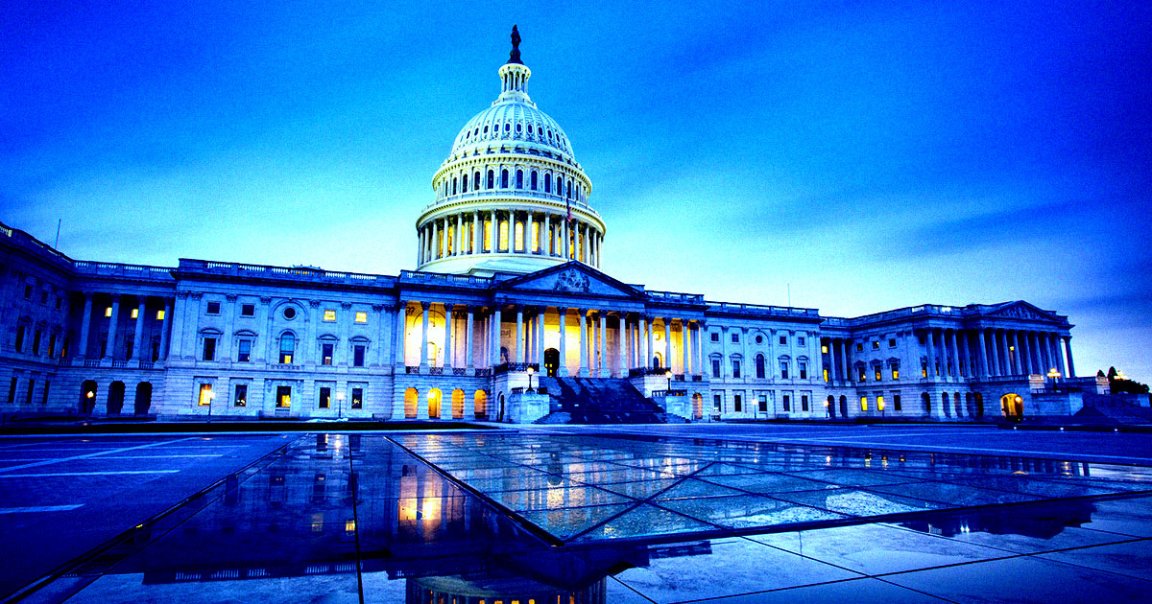
Fresh Hell
Republican lawmakers slipped language into the Budget Reconciliation Bill this week that would ban AI regulation, on the federal and state levels, for a decade, as 404 Media reports.
An updated version of the bill introduced last night by Congressman Brett Guthrie (R-KY), who chairs the House Committee on Energy and Commerce, includes a new and sweeping clause about AI advancement declaring that “no State or political subdivision thereof may enforce any law or regulation regulating artificial intelligence models, artificial intelligence systems, or automated decision systems during the ten year period beginning on the date of the enactment of this Act.”
It’s a remarkably expansive provision that, as 404 notes, likely reflects the engraining of Silicon Valley figures and influences into Washington and the White House. Tech CEOs have vied for president Donald Trump’s attention since he was inaugurated, and the American tech industry writ large has become a fierce and powerful lobbying force. The Trump administration is also stacked with AI-invested tech moguls like David Sacks, Marc Andreessen, and Elon Musk.
Meanwhile, the impacts of a regulation-free AI landscape are already being felt. Emotive, addictive AI companions have been rolled out explicitly to teenagers without evidence of safety, AI companies are missing their climate targets and spewing unchecked emissions into American neighborhoods, and nonconsensual deepfakes of women and girls are flooding social media.
No regulation will likely mean a lot more fresh hell where that came from — and little chance of stemming the tide.
Blank Checks
The update in the proposed law also seeks to appropriate a staggering $500 million over ten years to fund efforts to infuse the federal government’s IT systems with “commercial” AI tech and unnamed “automation technologies.”
In other words, not only does the government want to completely stifle efforts to regulate a fast-developing technology, it also wants to integrate those unregulated technologies into the beating digital heart of the federal government.
The bill also comes after states including New York and California have worked to pass some limited AI regulations, as 404 notes. Were the bill to be signed into law, it would seemingly render those laws — which, for instance, ensure that employers review AI hiring tools for bias — unenforceable.
As it stands, the bill is in limbo. The proposal is massive, and includes drastic spending cuts to services like Medicaid and climate funds, slashes that Democrats largely oppose; Republican budget hawks, meanwhile, have raised concerns over the bill’s hefty price tag.
Whether it survives in its current form — its controversial AI provisions included — remains to be seen.
More on AI and regulation: Signs Grow That AI Is Starting to Seriously Bite Into the Job Market